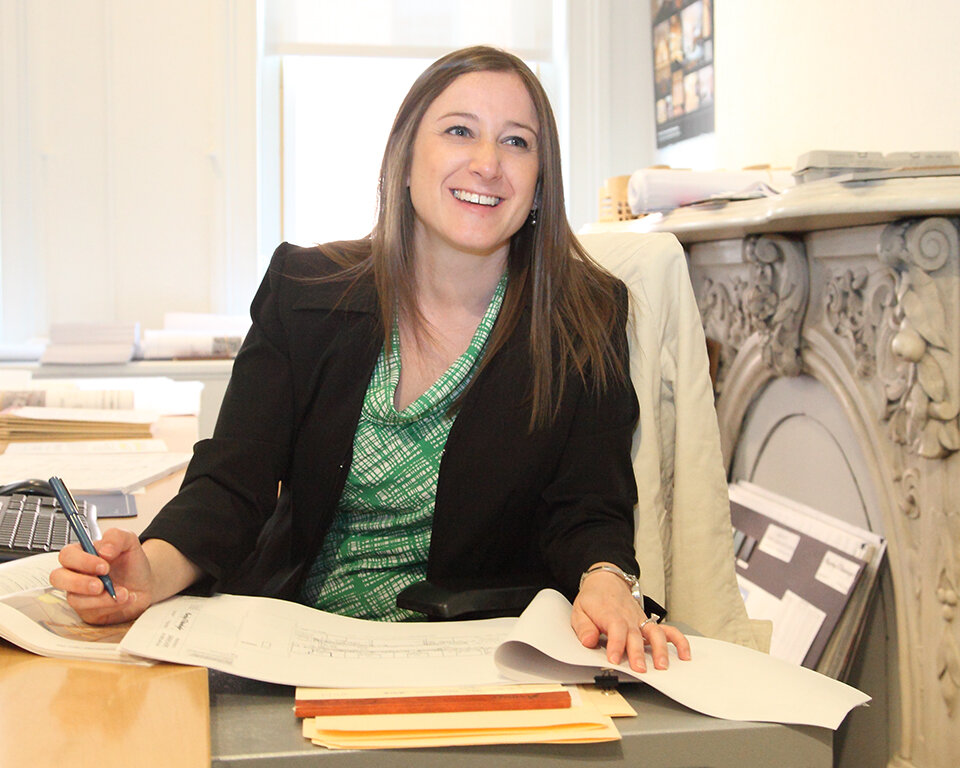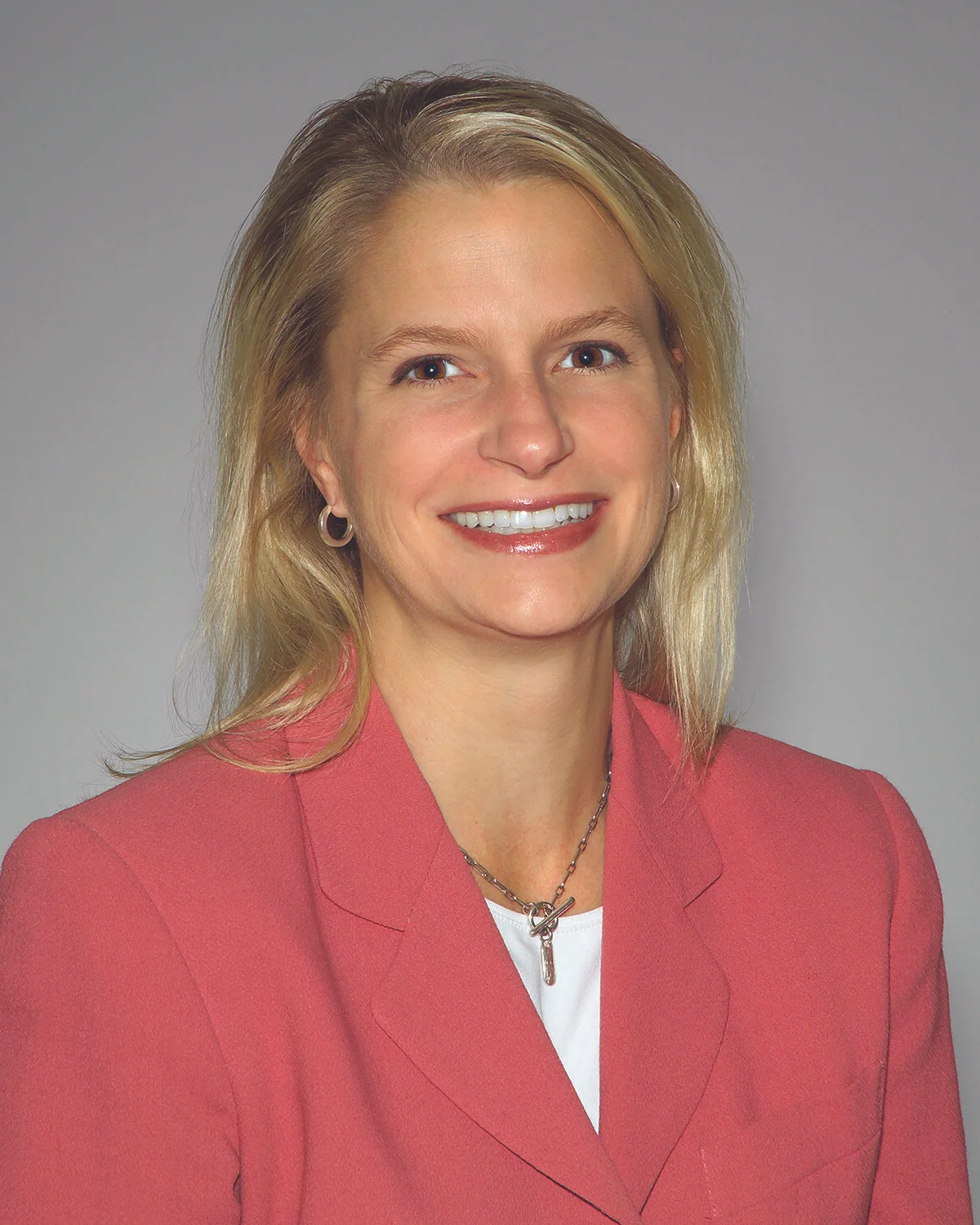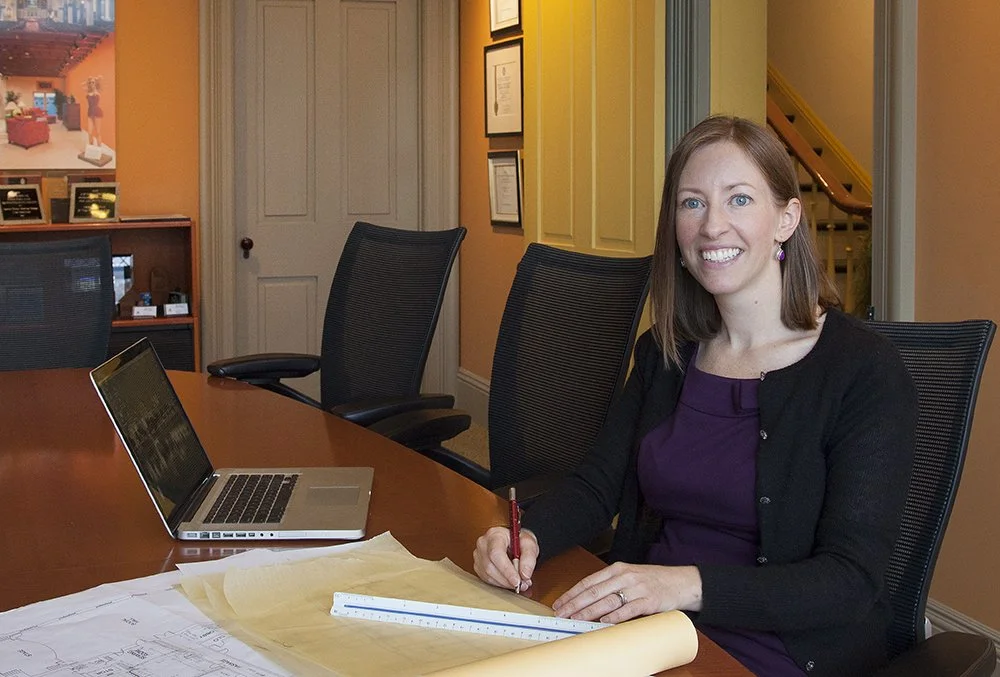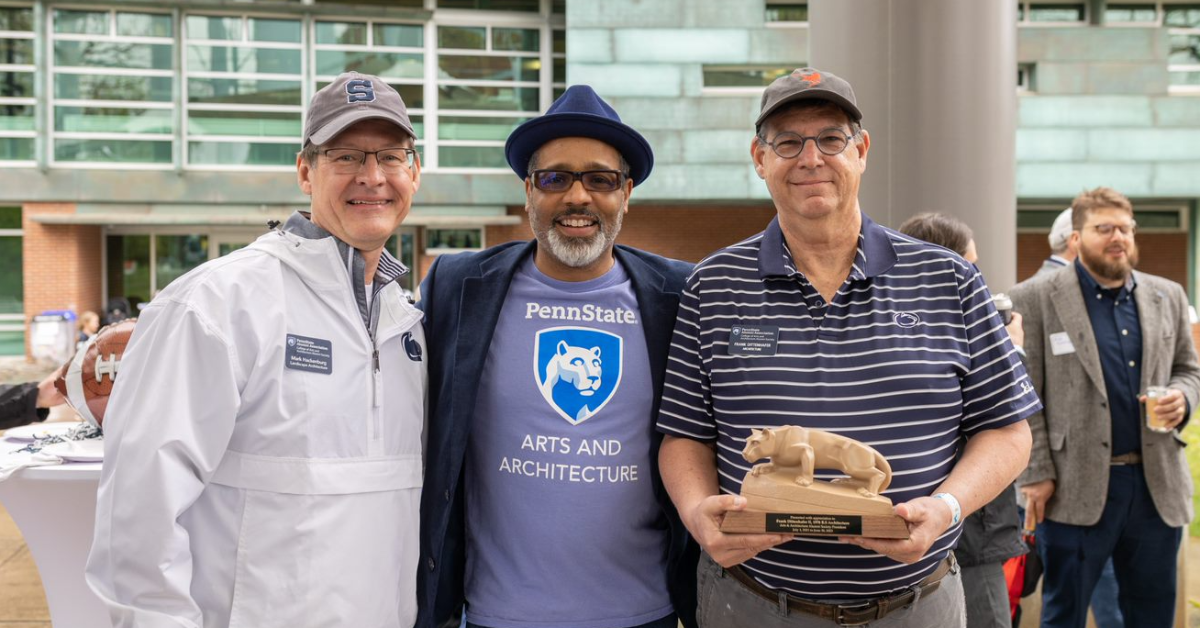Murphy & Dittenhafer Architects’ female professionals say they’ve found merit often trumps gender in Architecture.
Lauren Myatt, Principal, licensed Architect and project manager
Success in today’s business world requires workforce diversity. At Murphy & Dittenhafer Architects, in a field traditionally dominated by men, female professionals are contributing to the firm’s success through leadership roles in various areas.
One female leader is Lauren Myatt. A Principal, licensed Architect and project manager, Myatt has worked at M&D since graduating from Virginia Tech’s Architecture School in 2008.
“The perception is Architecture is a male dominated field,” Myatt says. “It’s not a secret. While I haven’t experienced extra scrutiny, I sometimes feel there is a certain level of professionalism and composure I must maintain when representing myself.”
The two keys, she says, are paying attention to details and communication.
Like us on Facebook!
“You must manage internally, but also manage the communication to make sure the project is what the client is looking for in the end,” she says. “This requires communication with the client and the engineering consultants working on the projects.”
Together, this demands she transmit her vision of the project to the contractor, while also being the point of contact with the client to assure her team is doing is what the client wants.
At M&D, Myatt finds ample opportunities for professional growth.
“As a female, I’ve had chances to step up, on management and design, when upper staff looked to me and other women to have this responsibility,” she says.
Myatt is paying this forward mentoring younger staff, believing this will help the male-dominant Architect stereotype fade into history.
Beth Reed, Director of Operations, Principal
Oiling the machine
While Murphy & Dittenhafer Architects depends on skilled, dedicated Architects, keeping the business running smoothly, making the numbers add up, and pitching projects to clients are also integral to success.
Director of Operations, Principal Beth Reed sees to all this.
“I oversee policies, procedures, computer operations, handling of contracts, in-house accounting, and business development, including proposal writing,” Reed says.
Her degrees in marketing and management and experience in marketing, advertising, technology, and human resources helped Reed work up to her current position and are key in handling a wide array of responsibilities.
“Architects use high-end, cutting edge software. We need to be up on the newest software and aware of what competitors are using,” notes Reed, who provides computer training.
Gender, she says, has never been a factor.
“I can honestly say no one I’ve worked for has cared about anything more than someone who can do a good job,” she says.
Acknowledging operations is not often seen as an area of female expertise, Reed believes her skill working with Architects – from translating large volumes of information into concise proposals to win projects – is what counts.
Rebecca McCormick, Architect and Project Manager
Seeing changing trends
Early in her career, in North Carolina, M&D Architect Rebecca McCormick was mistaken by contractors several times for a secretary and had her authority questioned.
“Contractors didn’t take me quite as seriously because I was a young female, more so in the construction aspect rather than design,” she recalls. “I was questioned about what types of materials were being used.”
But McCormick sees her profession changing.
“Fifty-one percent of my Architecture school class was female,” she says, “and I was hired at M&D with the intention of becoming a project manager.”
As a licensed Architect now holding this PM position, she wants to help more women advance.
“Not as many women go through the licensure process,” she says. “I intend to help in this area. I want to get more involved in mentoring and believe M&D will support this.”
One reason McCormick feels this way is how the firm handles work-life balance.
“Women are having careers and families at the same time, giving young women more people they can relate to,” she says. M&D provides scheduling flexibility and understands family issues happen, removing one more obstacle for women scaling the Architecture ladder.
Njillan Sarre, Architectural Designer
Being aware of gender bias
One of the firm’s Architectural Designers says she prepared for gender bias in college
“I helped start Women in Architecture at the University of Maryland,” says Njillan Sarre. “We worked to learn more about the field and how to work toward more equality.”
At M&D, Sarre feels on equal footing with her male colleagues. “Everyone gets the same opportunities to participate and share opinions,” she says. “I am taken seriously as a colleague.”
Sarre sees her strengths as familiarity with technology used for designing, which helps make the process faster and produces 3D drawings, useful in winning projects. She feels she may be more sensitive to details in some design aspects, such as choosing finishes for floors and walls, selection of interiors, and tying up loose ends at the finish of a long design process.
She believes Architecture and M&D are good places for her.
“As a woman and minority, I feel secure in my position,” she says. “Does it feel right and suitable? So far, the answer is yes.”



































Harford Community College’s expanded new construction Chesapeake Welcome Center is a lesson in Architectural identity